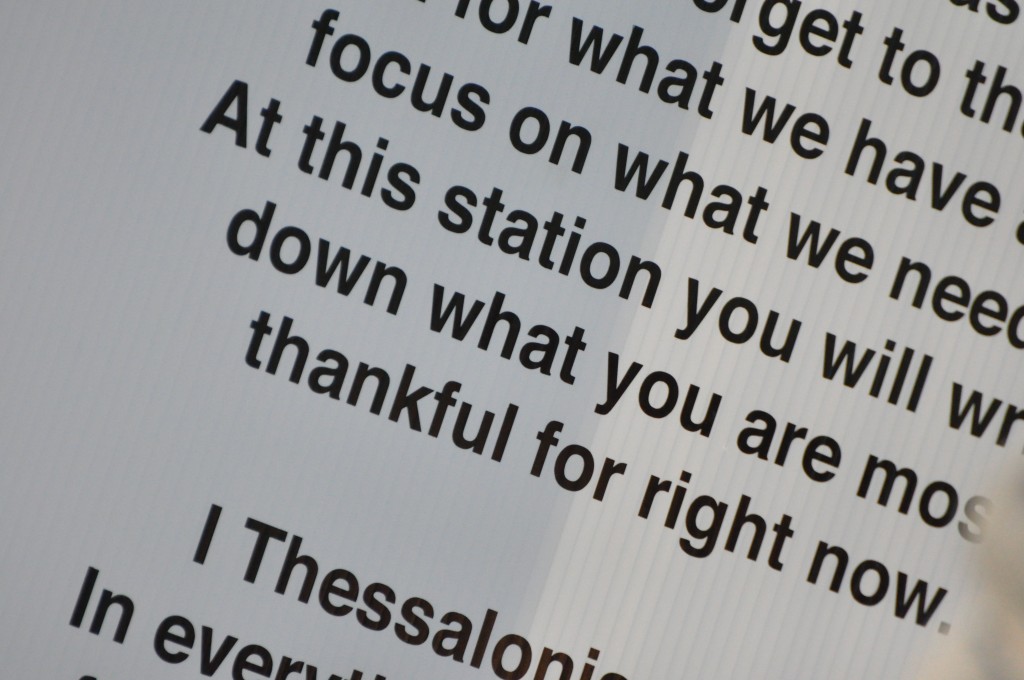Worship
When “new” feels scary and uncertain
I know you’ve experienced them, too: transitions. Stepping into a new job and leaving the old one. Uprooting your household to relocate. Or just entering a new season in life (anyone else watching their nest emptying rapidly?).
All change brings some degree of ambiguity–even if it’s a change we desire. And frankly, uncertainty can be really hard to bear. Transitions are difficult for most everyone… including the people of the Bible. I think Jacob—a forefather of our faith—dealt with it often. His response in a particular instance is instructive for us.
Read MoreHow Christians can respond to COVID-19

What guidance does the Bible have to offer us in the midst of a pandemic?
How should Christians respond to the challenges presented by COVID-19? When (and how) will this resolve? We’ve all got far more questions than answers. The novel coronavirus isn’t specifically addressed in Scripture. But the Bible does offer the timeless, applicable wisdom we need–even for the situation we face.
I’ve been reading (and writing!) my way through the book of Genesis this summer. Noah’s “quarantine” in the ark in chapter eight felt oddly relatable (though I am not drawing a comparison between the flood and the coronavirus). So, I determined to follow his lead and discovered some practical nuggets that will help us continue to weather our current circumstances.
Read MoreThree things to learn from the Magi
If you signed up to participate in the Advent Bible study but didn’t get questions on Monday, please reply to this email and I’ll make sure your profile is updated. And it’s not too late to join us; sign up here.
The wise men of the nativity story have much to teach us…
…despite their fairly brief appearance on the pages of scripture. Not the least of which is the reason for the name of our Bible study. (Pop over to Facebook for a video explanation on that.) A short reading of of Matthew 2 reveals much about these men, even though it leaves a good bit unsaid. Three things for us to learn:
Know the Word.
These men — and we don’t actually know how many there were, we know only the number of gifts — obviously knew the Old Testament prophecies well enough to set out on a long journey in response to them. Perhaps their knowledge was as a result of Daniel’s or Esther’s influence in Persia from long before? They arrived in Jerusalem looking for the King of the Jews (a logical, but errant, assumption to find Him in the Jewish capital). Matthew 2:2 reveals their knowledge. The chief priests, then, in 2:5, quote Micah’s prophecy directly (Micah 5:2). The Magi knew enough to respond; the priests knew the very words of the prophet. We, too, must know the Bible well enough that we can readily recognize truth, and act upon it. Read More
Three reasons why I observe Lent
Some dismiss Lent as a Catholic tradition, irrelevant to those practicing a Protestant faith.
They deem it a meaningless ritual and wave off the idea, claiming that observing this season on the church calendar is unnecessary or even trivial.
I couldn’t disagree more. Read More
In a word
This week I’m away speaking at a high school camp. Three hundred students gathered to seek God through play, worship, study and fellowship. It’s awesome.

During one worship session, the students were invited to write down those things for which they are thankful on a shared canvas. This one moved me deeply. Does it you?

We’ll resume our “scheduled programming” next week. Thanks for reading along.
Before Joy
As Christians who live in light of our Messiah’s resurrection, I think we often gloss over all that the Lord endured in the days between Palm Sunday and Easter. While Jesus’ redeeming sacrifice on the cross is difficult to meditate on, such awareness is necessary in order to appreciate the incomparable cost. I encourage you to join me in taking a cue from the Jewish Passover celebration as a way to do just that — see what I mean by reading last year’s Maundy Thursday post here: The Cup of Deliverance.
For the joy set before him [Jesus] endured the cross, scorning its shame, and sat down at the right hand of the throne of God.
— Hebrews 12:2b NIV
Singing Unhindered (Why we should sing in church)
This kind of embarrassment went way beyond the social undoing caused by wearing the collar of your polo shirt the wrong way in the early 1980’s.
It was the beginning of a new quarter. I dutifully arrived in the choir classroom for the first day of the required class. I’d already completed the other 7th grade required quarters of shop, home economics, and art.
Familiar with piano after several years of lessons, I understood what she meant when she instructed the class to sing back the arpeggio she would play for each individual. This was, apparently, the means by which she would determine vocal range and placement in the choir. Read More
In the name of the Father, Son, Holy Spirit… and Versace?
I found it scandalizing. And confusing. And sad.
I recently saw a video clip of a woman offering tips on how to make an adult baptism stylish. I struggled to understand why a baptism needed to be stylish and was concerned that the point of baptism—an outward expression of faith in Jesus Christ—had been missed.
I still feel the main purpose behind baptism was lacking in the clip, but I am reticent to judge harshly the faith of a person I ‘know’ only through a 90 second spot. As I reflected further, it occurred to me how often baptism and styles of worship are sources of division in the church. Perhaps that’s because, at least to some degree, we’re all missing the point? Read More
Caution: Men at Worship
Grungy clothes. Sweaty brows. Dusty feet. How did this manual labor constitute a church service?

Church looked a little different this weekend. Our ‘Sunday best’ involved work gloves, hats and rolled-up sleeves. Our congregation took to the hills for a little old fashioned work.
We ambled our way up the hill and put our shoulders into the effort. I watched my children and husband find their groove and settled into my own. My body engaged in its task and my mind began to muse. The lessons were plentiful… Read More
The Cup of Deliverance
The night before He died…
Jesus celebrated Passover with His disciples in the Upper Room. Together, they ate the Passover meal according to the ritual laid out in the Jewish Seder, a worshipful ceremony which celebrates God’s work in their national history. The Seder service retells their story through four ‘cups’: the Cup of Freedom, the Cup of Deliverance, the Cup of Redemption and the Cup of Hallel (Praise).
Each section of the Seder — each cup, if you will — has a story that precedes it. At the conclusion of the storyline, participants consume the whole cup of wine or juice. The second cup, the Cup of Deliverance, specifically commemorates God’s work in freeing the Israelites from their slavery in Egypt through each of the plagues and ultimately the death of all firstborn (Exodus 7-12). In my study of the Passover meal, I learned that this second cup is not a full cup of wine.
In the Bible, a full or overflowing cup is a symbol of joy or satisfaction.
The Jewish people take no joy in the many deaths their deliverance required. And so, when the wine is poured for the Second Cup, it is filled only partially. Furthermore, in the telling of the Second Cup, the Jews recount each of the ten plagues and spill a drop of wine for each plague, representing a loss of joy due to the suffering of their enemies.
As we solemnly observe Maundy Thursday and Good Friday in anticipation of Easter this Sunday, I wonder if we might take a cue from Israel and pour our glasses only partially full at mealtimes in the coming days before Easter when our joy is again full.
In this might we remember that our deliverance from the wages of sin cost Jesus His life.
He died for us while we were still His enemies (Romans 5:6-8). His willingness to drink the cup set before Him, purchased our redemption.
Consider participating in or hosting a Christian Seder;
I recommend Ann Hibbard’s book,
Family Celebrations at Easter.



